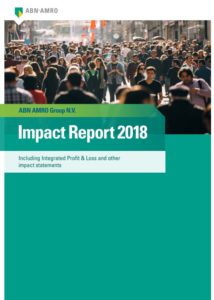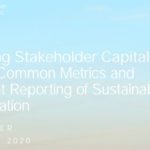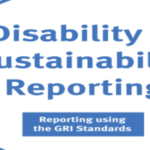
Managing a company used to be straightforward: make sure you make profit. Nowadays, more is required. Companies are expected to create positive value for their clients, employees and communities, while at the same time minimizing their negative impacts such as carbon emissions. However, current reporting mainly focuses on measuring profit for shareholders. A new guideline, Framework for Impact Statements, developed by Impact Institute, makes it possible to calculate and report on societal profits & losses. ABN AMRO is the first bank in the world to publish its Impact Statement based on the new framework.
The Framework for Impact Statements (FIS) helps companies to show, in addition to their financial value creation for shareholders, also the value creation for their clients, their employees and the community in which they operate. Impact Statements in this way complement the traditional financial statements. Impact Statements are about more than just financial capital: natural, social, human, intellectual and produced capital are also included. The core of the Impact Statements is the Integrated Profit & Loss, in which societal impact is calculated and converted into euros. Impact Statements allow companies to steer on the value they create per stakeholder and capital and on their contribution to the Sustainable Development Goals of the United Nations.
Dutch companies lead the way
The Framework for Impact Statements was prepared based on the experience of the Impact Institute and its partners, including ABN AMRO, AkzoNobel, Alliander and DSM. The guideline builds onto various international conventions and frameworks, such as those of the International Integrated Reporting Council (IIRC). It also aligns with the international trend towards measuring impact, in which several Dutch companies are leading. For example, energy network company Alliander has been publishing and managing its societal costs and benefits for several years now.
For the first time, ABN AMRO has published an Impact Report. Tjeerd Krumpelman, Global Head of Advisory, Reporting and Engagement at ABN AMRO: “We are proud to be a bank that leads the way with integrated reporting based on the six capitals of the IIRC. Impact Statements provide us and the outside world with valuable information about the long-term value that we create. We are committed to increasing our long-term value and reducing our negative impacts together with our stakeholders.”
Open Standard
Impact Institute is working on an open standard for Impact Statements and sees the published guideline as the first step. An open standard makes it possible for every organization to prepare Impact Statements within five years. The Impact Institute wants to involve the business community in achieving the Sustainable Development Goals that all countries have endorsed. “The development of the standards for the financial statements took about 50 years. With an open standard, we want to do this in five years for impact statements. We invite interested parties to contribute to this”, says Adrian de Groot Ruiz, executive director of Impact Institute.



